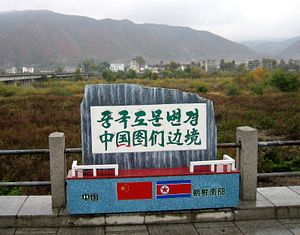If there is one golden rule in Chinese international relations for the last 70 years, it is that the Democratic People’s Republic of Korea (DPRK) has always maintained its ability to cramp its huge neighbor’s style and complicate its space. The People’s Republic of China, after all, was only a year old when the first shock came. According to the magisterial history of the foreign relations of modern China by John Garver, in 1950, Beijing was ready to achieve full unification over its claimed territories by launching an attack on the island of Taiwan, where the Nationalist army of Chinag Kai-shek had fled. The launch of the Korean War, mostly at the instigation of the North under Kim Il-sung, caused Beijing’s plans to come to a juddering halt while it refocused attention north. Three years, and many hundreds of thousands of casualties, later, China was finally able to withdraw. But its Taiwan plans were scuppered.
In the second decade of the 21st century, under China’s fifth generation of leadership and the DPRK’s third, things have not improved. The DPRK is regarded as being unpredictable and fickle in every area, but it has been utterly consistent in working against the interests of its supposedly greatest benefactor and ally. Greeting the election of a new U.S. president, and a particularly unknown and untested one, the DPRK launched a provocative missile toward Japan in February. The reported “assassination” of Kim Jong-nam, half-brother of the DPRK’s young regent Kim Jong-un, while going through Kuala Lumpar airport in February, has not yet been linked to orders from Pyongyang. Perhaps it never will. But who would look at the past behavior of the North Koreans, with their record of bombing planes, supporting weapon sales, and using diplomatic channels to undertake drugs and weaponry business to raise revenue for their desperate regime and be confident in totally discounting a link?
For China today, with a huge moment of global opportunity within its grasp, and a world of influence to win for it, the irritation and provocations of its small neighbor carry higher and higher costs. China’s posture over the last few decades has been consistent. The DPRK is its only treaty ally; they are ideologically bound together. Elite Chinese leaders have stressed that maintaining the status quo is key. They do not want a unified Korea under U.S. protection, nor a DPRK falling apart and then necessitating massive financial inputs.
With no easy route out of this impasse, China has been happy to tolerate a nuclearizing neighbor, as long as it politically just stays the way it is. Beijing’s strategy has been management, hoping that while no solution exists today one will magically fall from the sky in the future. Pyongyang has expertly exploited this passive posture. Often called China’s little brother, like a younger sibling it has been manipulative and irritating to its neighbor. Yet China’s elite leadership has so far maintained an avuncular attitude – don’t force the DPRK into a corner, just give them a little space, and tolerate their games.
The fact that the possible assassination in Malaysia happened only days before China placed a ban on coal exports to Pyongyang might finally be a sign that Beijing has run out of patience. Xi Jinping has traveled the globe – visiting Fiji, Hobart, and Manchester. But he has yet to get on a plane for the one hour journey to Pyongyang. Nor has the young Kim graced the red carpeted halls of Beijing. Informal reports indicate that the Chinese leader regards the 30-something DPRK leader as a spoiled upstart not worthy of direct contact.
As Andrei Lankov shows in his excellent work on the DPRK, we are dealing with one of the most cynical, Machiavellian leaderships in the world in Pyongyang. This only indicates that there is no Plan B for them. Even moderate reforms might unleash forces that simply sweep the dynasty away. The Kim regime therefore only clings on through fear, blackmail, and bribery. With the breakdown of the Six-Party Talks in 2008, the rest of the world showed it has run out of ideas and patience in dealing with the DPRK problem. New U.S. President Donald Trump in his campaign stated categorically that management of this issue is China’s responsibility. In many ways, that was one of the few lucid statements he made about international affairs last year.
Trumps is right. China should, and can, deal with the North Koreans. Their actions have always been an embarrassment, particularly for Beijing. China as a great nation with a global reach now is simply humiliated by the behavior of a supposed ally that specializes in provocation and demeaning actions with no thought of the impact on their neighbor. But now things are different — the stakes are so high for China that it simply cannot risk having the DPRK continue to act as a distraction and frustration. We may well be seeing therefore an era of far harsher response to Pyongyang. The world has long suspected that the route to solving the seemingly intractable issue of the DPRK lies through Beijing. And for once, Beijing might be willing to do something.
































